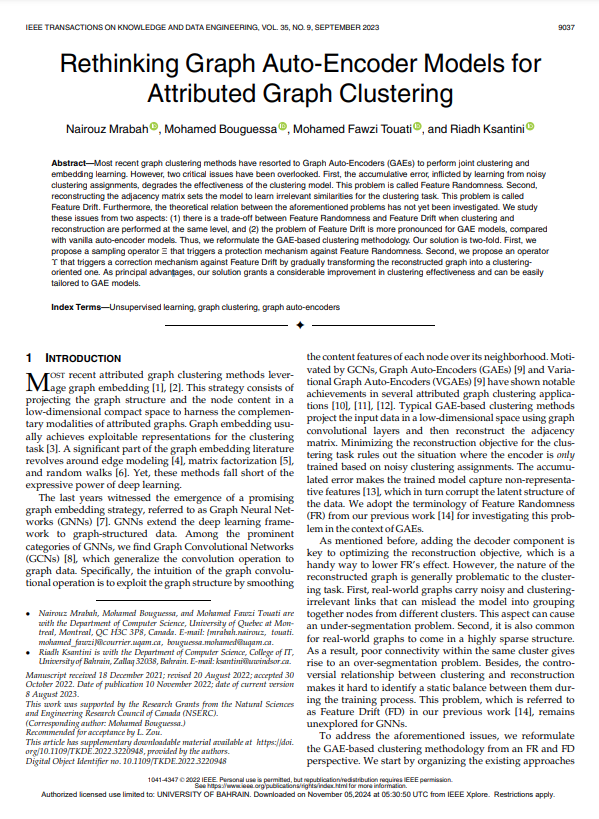Document
Adversarial Deep Embedded Clustering : On a Better Trade-off Between Feature Randomness and Feature Drift
Linked Agent
Bouguessa, M, Author
Ksantini , R, Author
Title of Periodical
IEEE TRANSACTIONS ON KNOWLEDGE AND DATA ENGINEERING
Country of Publication
Kingdom of Bahrain
Place Published
Sakhir . Bahrain
Publisher
University of Bahrain
Date Issued
2022
Language
English
English Abstract
Abstract :
To overcome the absence of concrete supervisory signals, deep lustering models construct their own labels based on self-supervision and pseudo-supervision. However, applying these techniques can cause Feature Randomness and Feature Drift. In this paper, we formally characterize these two new concepts. On one hand, Feature Randomness takes place when a considerable portion of the pseudo-labels is deemed to be random. In this regard, the trained model can learn non-representative features. On the other hand, Feature Drift takes place when the pseudo-supervised and the reconstruction losses are jointly minimized. While penalizing the reconstruction loss aims to preserve all the inherent data information, optimizing the embedded-clustering objective drops the latent between-cluster variances. Due to this compromise, the clustering-friendly representations can be easily drifted. In this context, we propose ADEC (Adversarial Deep Embedded Clustering) a novel autoencoder-based clustering model, which relies on a discriminator network to reduce random features while avoiding the drifting effect. Our new metrics DFR and DFD allows to, respectively, assess the level of Feature Randomness and Feature Drift. We empirically demonstrate the suitability of our model on handling these problems using benchmark real datasets. Experimental results validate that our model outperforms state-of-the-art autoencoder-based clustering methods.
Member of
Identifier
https://digitalrepository.uob.edu.bh/id/5c0967bb-cf31-4075-94c2-9c3db3ce2d95
